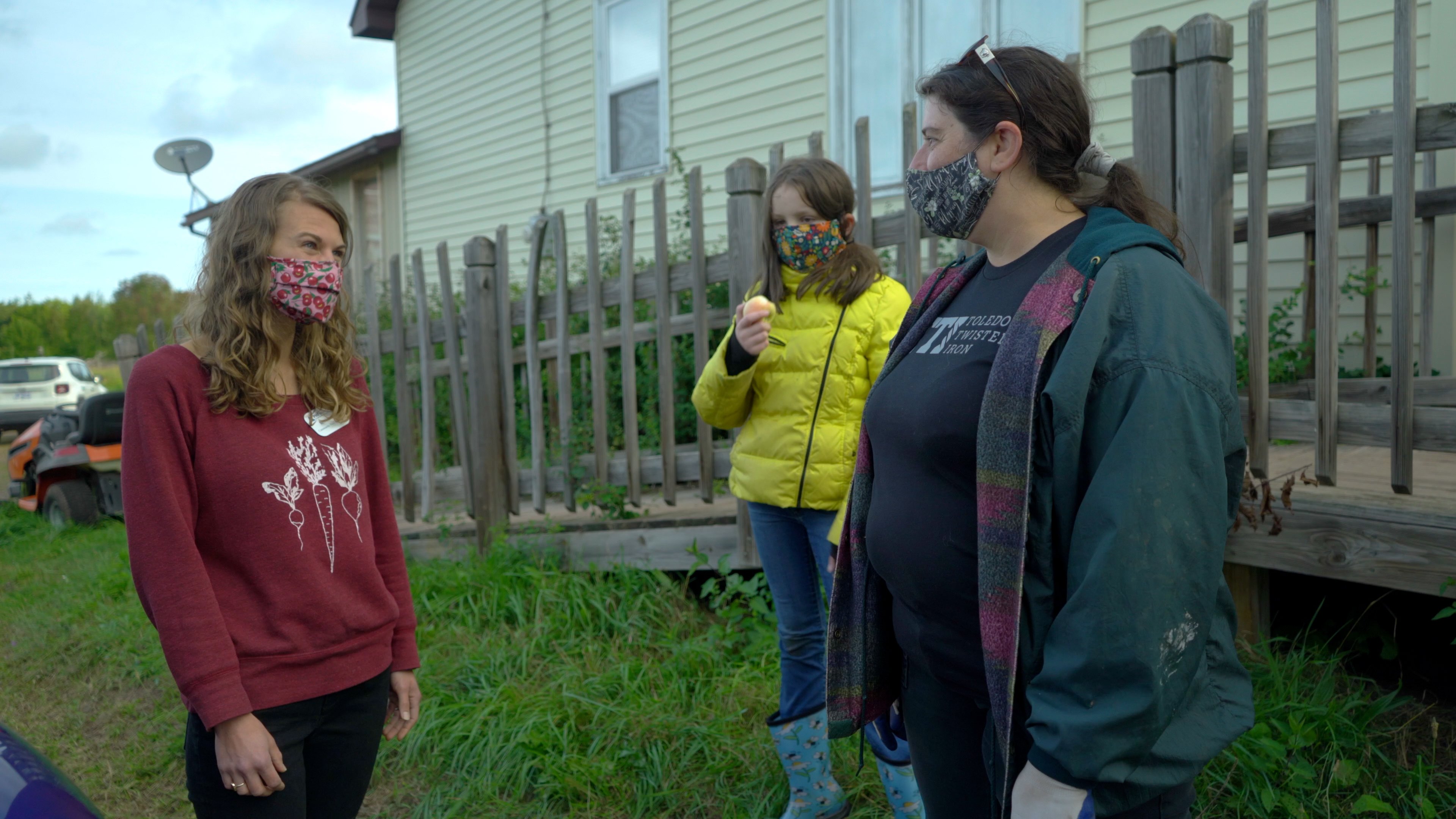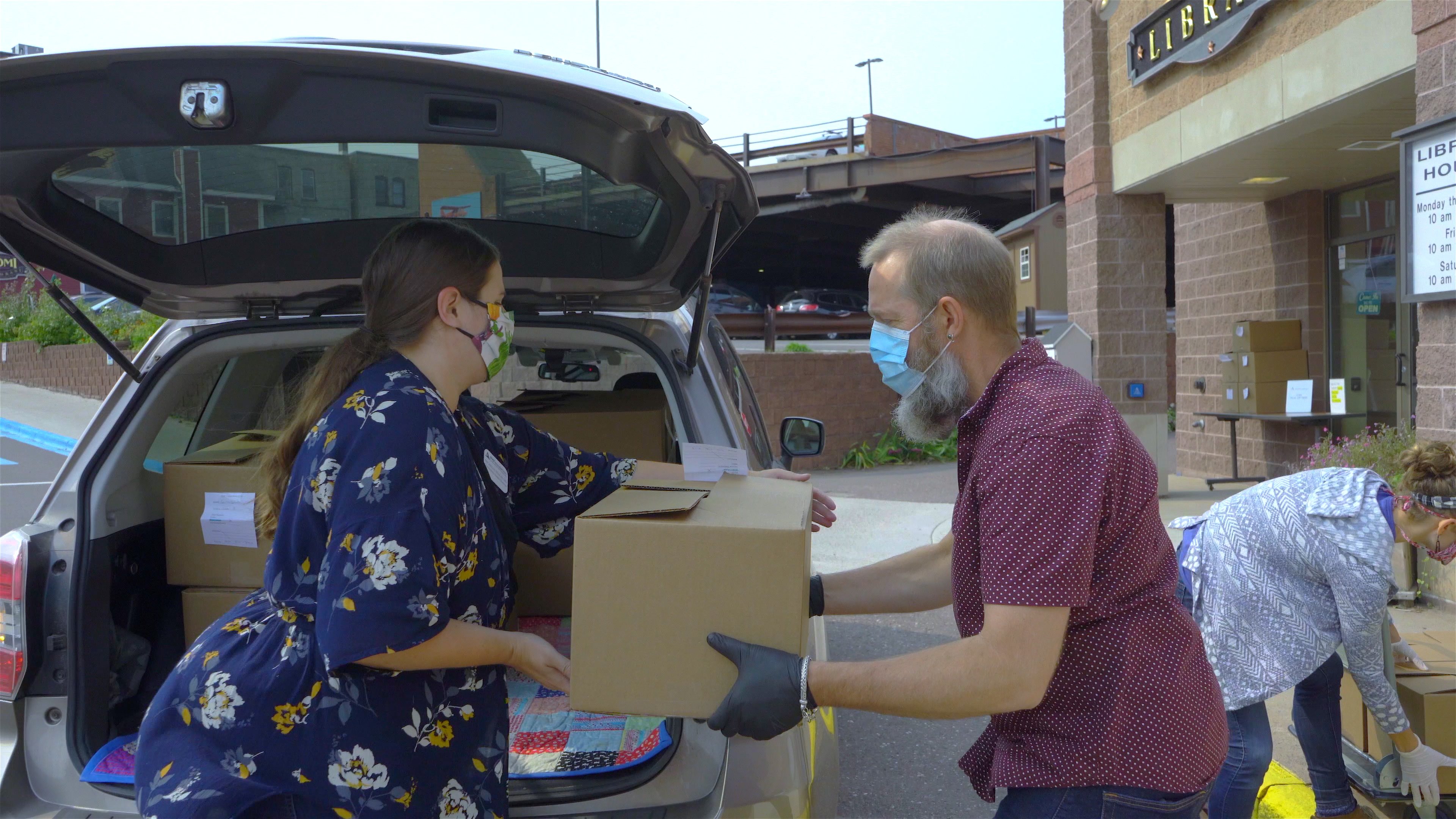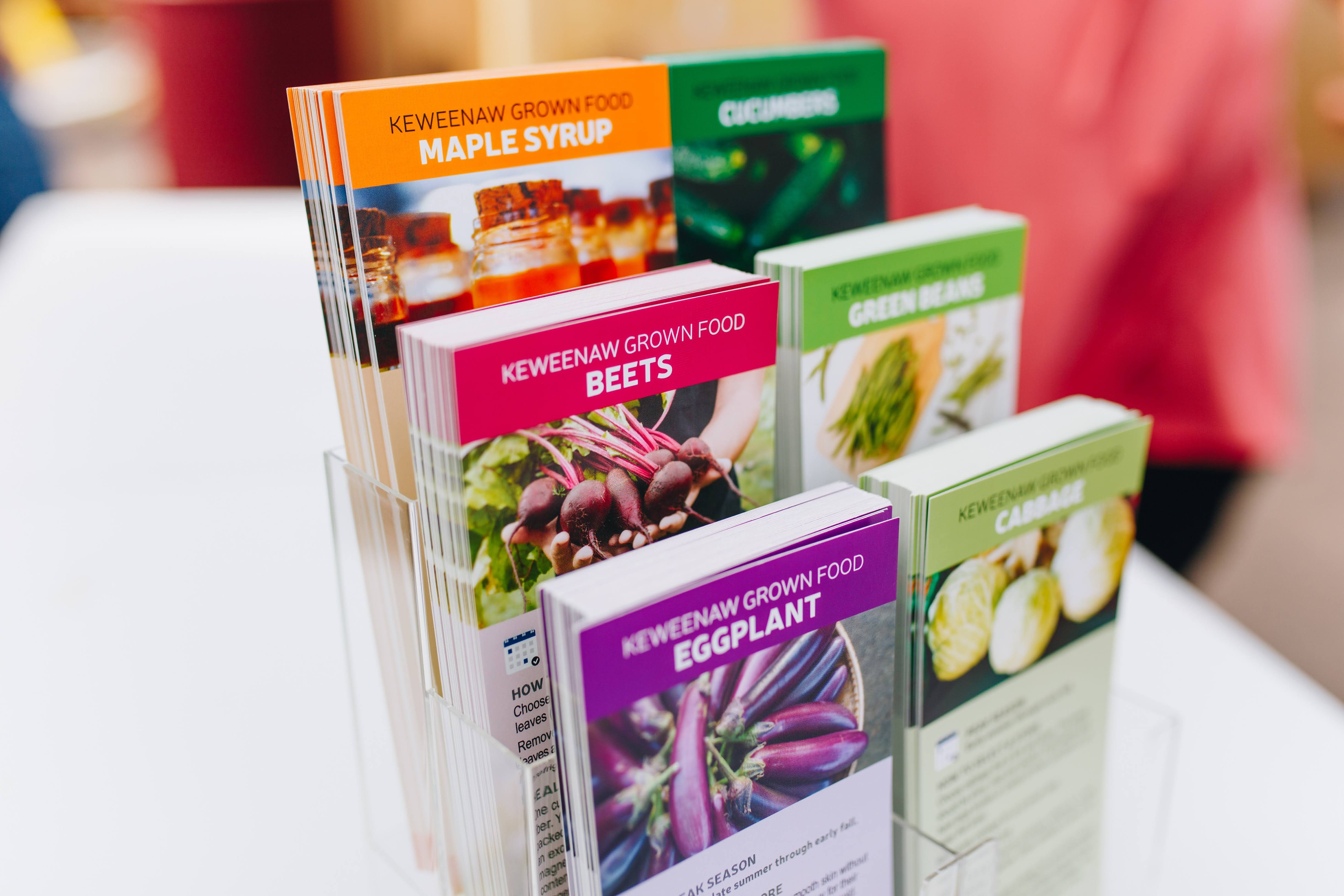Innovative Partnership Brings Local, Fresh Produce to Area Families
October 14, 2020 | By Michael H. Babcock
Collective CSA Program from PHF serves 20 families in summer 2020
In an effort to increase food access in Michigan’s Copper Country, Portage Health Foundation (PHF) created a program to bring local, fresh produce to 20 families this summer.
“As we’re looking at creating a healthier community, we really want to invest more in local and regional food systems that create resiliency in our communities as well as improve education and outreach opportunities,” said Dr. Michelle Seguin, Director of Community Health at PHF.
The Collective CSA Program served 20 families, including 54 kids reaching from Skanee to Calumet. Families received a box of fresh, locally grown produce each week for 12 weeks. In addition to the fresh food, the families received tools to prepare the fresh food, and educational materials to help them utilize the food.
The benefits of the program are multi-faceted in that local families are receiving food grown locally, which fosters a connection to the food system as well as supports local and regional agricultural economies.
Supporting the Local Agricultural Economy
 The program starts with local farms doing what they do best – growing incredible food. In total six farms participated in the program.
The program starts with local farms doing what they do best – growing incredible food. In total six farms participated in the program.
- Boersma Family Roots Farm (weekly CSA partner)
- Whispering Wild Market Farm (weekly CSA partner)
- North Harvest CSA (weekly CSA partner)
- Miller Family Farm (weekly CSA partner)
- Ransom Farm (weekly CSA partner)
- Dynamite Hill Farms (provided traditionally harvested wild rice and pure maple syrup)
Farmers worked with Collective CSA Program volunteers to come up with a list of what produce would be included each week. Volunteers then picked up the food from the farms on Tuesday mornings.
“Helping the people (in our community) is really neat,” said Gina Kerr of Whispering Wild Market Farm in Toivola. “I love how things are budding off of this program.”
Portage Lake District Library a Key Partner
 The fresh produce was then brought to the Portage Lake District Library where volunteers sorted it and boxed it for each of the families. Some of the families picked the food up at the library each week, some had the food delivered to their houses and others at places for pick-up like the BHK Center in L’Anse.
The fresh produce was then brought to the Portage Lake District Library where volunteers sorted it and boxed it for each of the families. Some of the families picked the food up at the library each week, some had the food delivered to their houses and others at places for pick-up like the BHK Center in L’Anse.
The library not only served as the central location for food packing and distribution, it was also host to the new web cooking series Biblio Bistro. All of the recipes featured in Biblio Bistro included produce that families received.
“We’re teaching folks who might not call themselves great cooks that they should come to (farmers) markets, see what the local options are and we try to set them up with some basic recipes,” said Michael Stanitis, Program Coordinator at Portage Lake District Library and co-host of the web series. More information on Biblio Bistro can be found at pldl.org/biblio-bistro.
More Than Produce
 The families received recipe cards and rack cards with information about the produce they received in an effort to improve food literacy. To make sure they had the ability to prepare the food, families received salad spinners and education on food storage and preservation.
The families received recipe cards and rack cards with information about the produce they received in an effort to improve food literacy. To make sure they had the ability to prepare the food, families received salad spinners and education on food storage and preservation.
Note: you can download all of these recipe cards and rack cards by visiting phfgive.org/food.
“This has been a wonderful opportunity for families to safely access not just fresh fruits and vegetables, but local fresh fruits and vegetables, and learn more about the produce that’s grown right here in their community,” said Katie Waara, Health Services Manager at BHK Child Development. “It’s been a real win-win.”
The families that participated were identified by non-profit organizations that serve families in Baraga, Houghton, Keweenaw or Ontonagon counties. Partners included UP Kids, BHK Child Development, Keweenaw Family Resource Center and KBIC Health System. There was no cost for the participants.
Addressing Food Insecurity
United States Department of Agriculture (USDA) defines “food insecurity” as “limited or uncertain access to adequate food within a household.” Signs of food insecurity include not knowing where one’s next meal will come from, worry that food would run out early, and skipping meals to stretch food out over a period of time.
This program was designed to mitigate what Dr. Seguin calls “the vicious cycle” that’s created by food insecurity. Food-insecure households have adults and children who are more likely to miss school or work. They are sick more often. Their performance at work or school is often lower. They’re more likely to visit the emergency room where they often rack up large healthcare bills. All of these things can impact employment status and household income, which reduce the ability to purchase nutritious food. And the cycle continues.
Food-insecure households are not necessarily food insecure all the time. Food insecurity may reflect a household’s need to make trade-offs between important basic needs, such as housing or medical bills, and purchasing nutritionally adequate foods. Times of intermittent unemployment often lead to periods of food insecurity – as our community is now seeing with the COVID-19 pandemic.
The problem is one that many people don’t see, but it’s very real in our community. Below are findings from the 2018 Community Health Needs Assessment.
- Less than 10% (~8%) of adults report eating 5+ servings of fruits & vegetables daily
- The food insecurity rate is approximately 13.9 percent in Houghton County.
- The food insecurity rate is approximately 14.8 percent in Baraga County.
Moving Forward
This program aimed to remove food access barriers to improve food resiliency here in Michigan’s Copper Country, and we see this as just the start of that effort. It’s all part of the foundation’s Food Initiative. Our Food Initiative is two-fold. First, the food initiative aims to improve access to locally grown and healthful foods within our community. Second, it provides educational resources and tools to promote sustainable changes to eating and lifestyle habits for all.
We don’t know what this program will look like in 2021, but we know there is a long road ahead of us to change the culture around food in our region. If you would like to learn more about the Food Initiative, receive email updates about what we have going on or support the initiative with a donation, visit phfgive.org/food.

